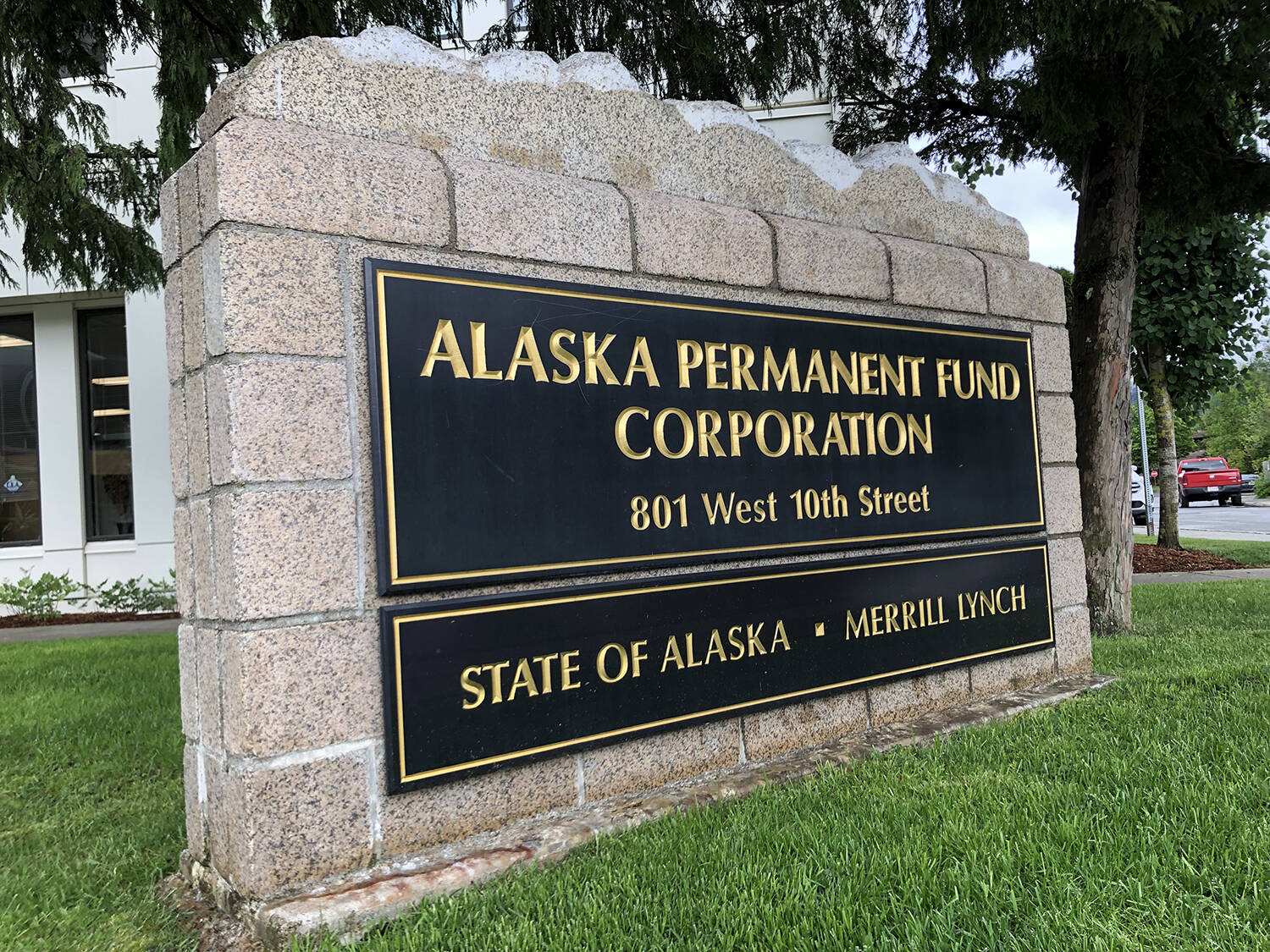The Alaska Permanent Fund Corp. intends to open an office in Anchorage by the end of the year, the chairman of the corporation’s board of trustees said Thursday.
When the office opens in space leased by the Department of Environmental Conservation, it will be the first time since its creation in 1976 that the corporation has opened a satellite branch outside Juneau.
“The principal policy driver behind this is recruitment and retention of employees,” said board chair Ethan Schutt.
The corporation, which manages the $78 billion Alaska Permanent Fund, has struggled to recruit and keep workers in recent years, and polls conducted internally among employees have suggested that life in Anchorage, instead of Alaska’s capital city, could be an incentive to stay.
Using a rough estimate, Schutt said about 5% of current employees — the corporation is authorized for 66 — could switch from Juneau to Anchorage if offered the chance.
Some potential new hires have also said they would prefer to live in Anchorage rather than Juneau, he said.
“There are a couple of candidates for important jobs that are in discussions right now, in fact, that have indicated that they would potentially accept employment with the Permanent Fund if we had an Anchorage office, but were not willing to look at Juneau,” Schutt said.
Anchorage’s larger size and the number of flights in and out are the things that potential hires are looking at, he said.
At the corporation’s July board meeting, discussion around the satellite office concept grew contentious when members of the board of trustees asked staff why, despite two board votes, an office wasn’t yet open.
The staff member who fielded the most intense questioning, Mike Barnhill, has since resigned, though it wasn’t immediately clear on Thursday whether his decision was linked to the satellite office.
In public testimony, former state Sen. Gene Therriault asked the board to reconsider, saying that until a satellite office is specifically authorized by the Alaska Legislature, unilateral action by the board “may irreparably damage” the corporation’s relationship with the Legislature.
Also testifying against the idea was Wayne Jensen, chairman of the Alaska Committee, a group dedicated to preserving Juneau as Alaska’s capital city.
Juneau lawmakers have fought the satellite-office concept for years, deterring the state-owned corporation from plans to open offices in Anchorage and investment centers like New York City.
In July, Department of Environmental Conservation Commissioner Jason Brune — at the time, a member of the board of trustees — suggested that the corporation could take advantage of disused DEC office space in its building on Cordova Street in Anchorage.
The corporation ran with that idea, and the result is something that’s cost-neutral, Schutt said.
The state already leases the Cordova Street building, Brune said, and the space that the corporation would take up isn’t being used, he said.
“The net cost to the state of Alaska will be zero,” he said.
It was not immediately clear what incidental costs — such as for office equipment — might also be incurred, but those expenses are expected to be small when compared to the corporation’s overall budget.
While the Cordova Street office space is envisioned as temporary, that could change if the experiment works, Schutt said.
“The board has expressed the desire to try this on the notion that it will help us to recruit and retain world-class talent, and we remain committed to that thesis,” he said.
• James Brooks is a longtime Alaska reporter, having previously worked at the Anchorage Daily News, Juneau Empire, Kodiak Mirror and Fairbanks Daily News-Miner. This article originally appeared online at alaskabeacon.com. Alaska Beacon, an affiliate of States Newsroom, is an independent, nonpartisan news organization focused on connecting Alaskans to their state government.

